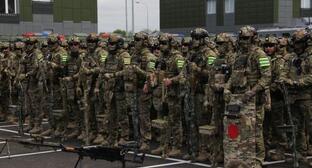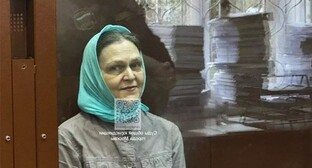24 June 2010, 18:00
Babushkin: torture problem is especially topical for prisoners from Northern Caucasus
Andrei Babushkin, head of the Committee for Civil Rights and a member of the Public Council at the Ministry of Internal Affairs (MIA), said in the course of the roundtable on the medical aspect of torture applied in prisons and isolation facilities that his Committee receives many applications from North-Caucasian inmates complaining that their rights as prisoners are restrained, including on the basis of their religious affiliation.
As reported by the "Caucasian Knot" correspondent, the roundtable "Medical aspects of torture" took place on June 23 in Moscow, at the Independent Press Centre.
According to Mr Babushkin, five percent of all applications sent to his organization are complaints from residents of North-Caucasian regions; and in many such cases a religious component is added to other torture reasons.
Besides, as Andrei has noted that prisoners from Caucasus are often sent to serve their terms far from home. "If they are accused of taking part in bandit formations, they try to send them far away, as convicts, guilty of especially grave crimes," he said.
"Officials from the UFSIN (Federal Correction Service) say that this is done deliberately to prevent their friends and accomplices from reaching them. But we object by saying that their relatives are also unable to reach them. We work with this problem," the rights defender has emphasized.
Andrei Babushkin believes that through efforts of public activists the volume of torture in Russia went somewhat down in recent years.
Elizaveta Dzhirikova, head of the Humanitarian Centre "Compassion" at the Human Rights Society "Memorial", told about her experience of working in jails.
Employees of medical divisions of isolation facilities and workers of the MIA and the Prosecutor's Office of the Moscow Region were invited to take part in the roundtable.
The MIA representative was quite brief, just saying that he knew nothing about torture cases in law enforcement bodies. In his turn, his colleague from the Prosecutor's Office was more verbose and thanked human rights activists for cooperation.
In Russia, torture is officially forbidden since 1801. According to the Criminal Code, use of torture for compulsion to evidence is punished by up to three years of deprivation of liberty.
Author: Lydia Mikhalchenko Source: CK correspondent




